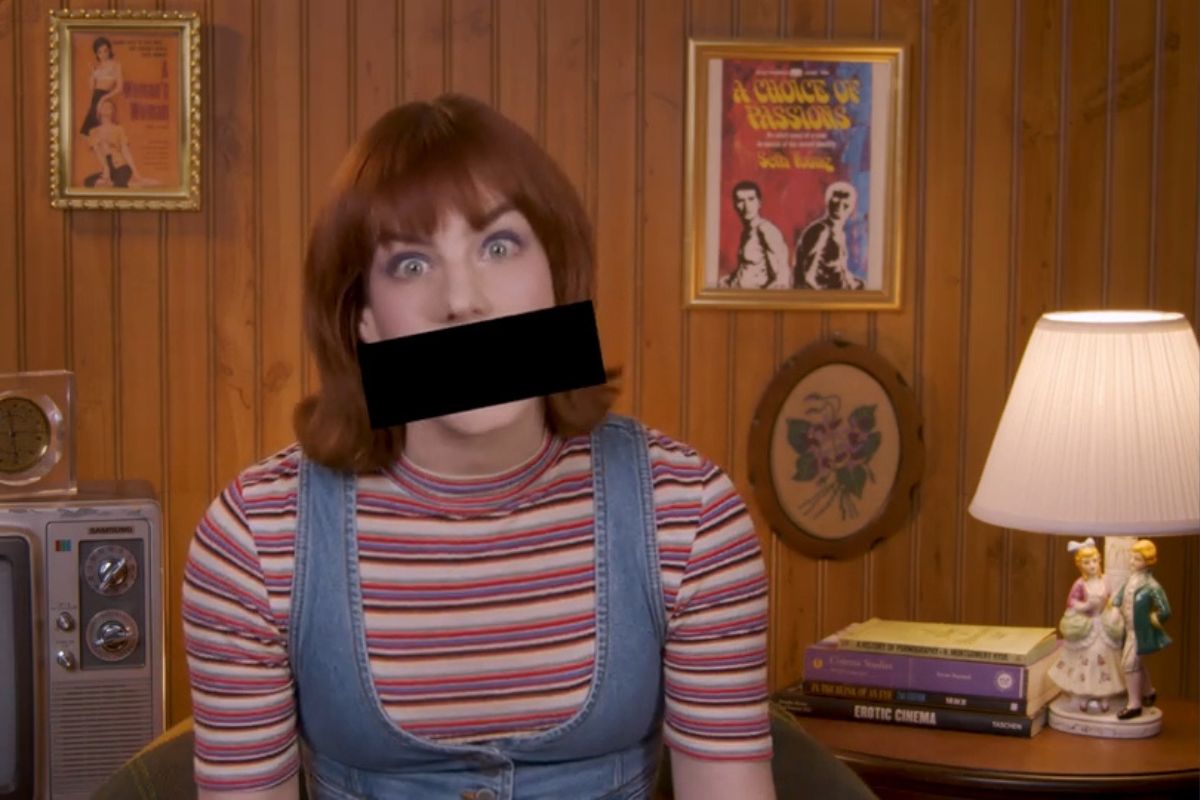This Nebula Original Series Is Worth the Price of Admission & Could Never Exist on YouTube

If you’re an avid reader of The Mary Sue and spend a lot of time on YouTube, you’ve probably heard of Nebula. The creator-owned video-on-demand streaming website hosts videos/classes mostly on history, civil design, and media criticism. While we’ve never had a formal partnership with the platform, former TMS editor Princess Weekes is one of the many excellent creators on Nebula. Over the past few weeks, I’ve explored the platform (with my own money, this is not sponsored at all) and taken a peek at their small but growing selection of original series. And after binging one in a single setting, I’ve come to the conclusion that this series alone was worth the price of admission. (That’s $5 a month without using one of its many ongoing discount codes.) Also, it’s a series that could never exist on the platform these creators come from, YouTube.
On Nebula, comedy writer, actress, and video essayist Maggie Mae Fish created and hosted a series called Unrated. She describes it as her “[diving] into the history of sex, sexuality, and gender in film, from the silent era to sexploitation to modern erotic movies.” Fish keeps the humor and depth of her YouTube work, but removes most of the censors. There are no callings things “s3ggs” instead of “sex” or “corn” instead of “porn.” Both I’ve seen become normalized online and even once on an IRL walking tour in Austin, Texas. And like everything else on the platform, it’s an ad-free experience.
Unrated hosted by Maggie Mae Fish
The seven-episode series begins with the eroticism and queer representation of pre-Hayes Code films and ends with the work of Cheryl Dunye (director/star of Watermelon Woman). She explores subtext, historical context, policy, conflicting interpretations, and more in short bite-sized episodes. Well, 20-40 minutes is short for me. I’ll put on an hour-plus-long video if the topic or person is interesting enough.
Unrated features several challenging perspectives. For example, I knew pre-code films were experimental. However, seeing the representations of gender and sexuality in films before 1934 shows just how much the early Red Scare stalled social progress and creative freedom in ways we’re still recovering from today. Like any thoughtful documentary series, Unrated will stick with you. This doesn’t just include the next time you watch a sex scene, but also their increasing absence in cinema. Unrated features a whole episode on Steven Soderbergh’s work and opinions on that trend.
As with any thorough deep dive into art/film history, not everything is light-hearted and fun. There’s a variety of serious topics as films reflect and challenge society. Still, Fish touches on everything with sensitivity. Also, she and co-writer Will Reese contracted consultants to look over sections that aren’t from their own experience. Additionally, there are also time-stamped content warnings under each video.
Even with massive precautions and by blurring bits, Fish could never upload something like Unrated to YouTube and hope to break even on production costs. The site would deem the series not Google AdSense friendly, age-gate it (beyond keeping it off YouTube kids), and, likely, suppress its reach on the algorithm. That’s if it doesn’t take down the videos altogether. It doesn’t matter how educational or “tasteful” (subjective, I know) sex-related programming is, YouTube will suppress it.
Talking about sex online
YouTube makes frequent exceptions for people who want to debate the age of consent while cutting agitprop that spreads harmful lies about the transgender community. YouTube will even let you run ads espousing these views. There are also dangerous videos from the precursors to and knock-offs of alleged sex trafficker Andrew Tate. And yet, neutral to sex-positive content without euphemisms is a no-go.
A few sex educators like Hannah Witton, Shannon Boodram, Reid Mihalko, and Dr. Lindsay Doe manage to thrive. (Also, shout out to Elexus Jionde for Let’s Talk About Sex … History!.) However, they all face similar roadblocks to financial stability due to talking about sexual health. In addition to issues with Google AdSense, their work limits sponsorships, no matter the video’s topic. Alongside Patreon, they’ve managed related sponsorship with ethical porn sites, sex shops, and adult toy retailers. Meanwhile, ad buyers can use sex to sell products/services via AdSense, but heavens forbid someone learn how to get tested for an STD or communicate their desires in a healthy way.
Of course, YouTube isn’t the only website like this. Also, it’s not just the company side either. Sex may run the internet, but major social media companies use a degree of sexlessness to sell ads. It’s almost a right of passage (Tumblr) to incentivize sex work, education, art, and more to improve marketability. I like a lot of what Nebula has to offer and most of it has nothing to do with intimacy. For example, I watch many of my favorite video essayists, Lindsay Ellis (who is exclusively on Nebula now), and Second Thought’s original series The New F-Word: How Fascism Found A Market. However, projects like Unrated feel like a breath of fresh air. And like I said earlier, totally worth at least trying the platform out.
(featured image: screencap via Maggie Mae Fish/Nebula)
Have a tip we should know? tips@themarysue.com